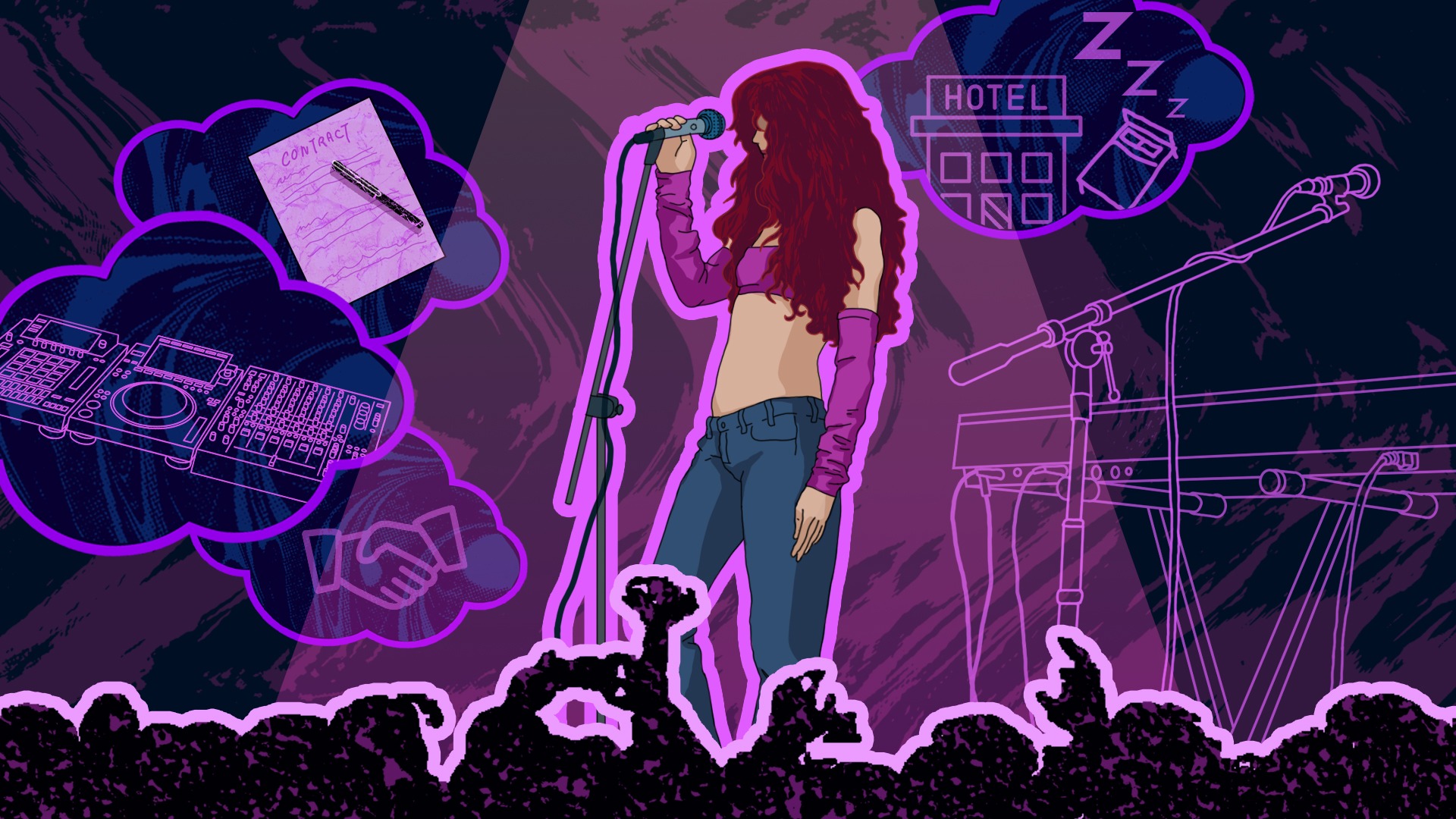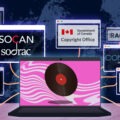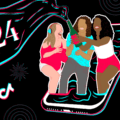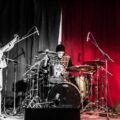Congratulations! You’re officially ready for your first big tour. You’ve ticked off all the tasks on your checklist, from travel logistics and grant applications, to finding other artists to play with and optimizing your online presence. As you hit the road, here are a few last tips and tricks to keep everything running smoothly, and to make sure you’re taking care of yourself along the way.
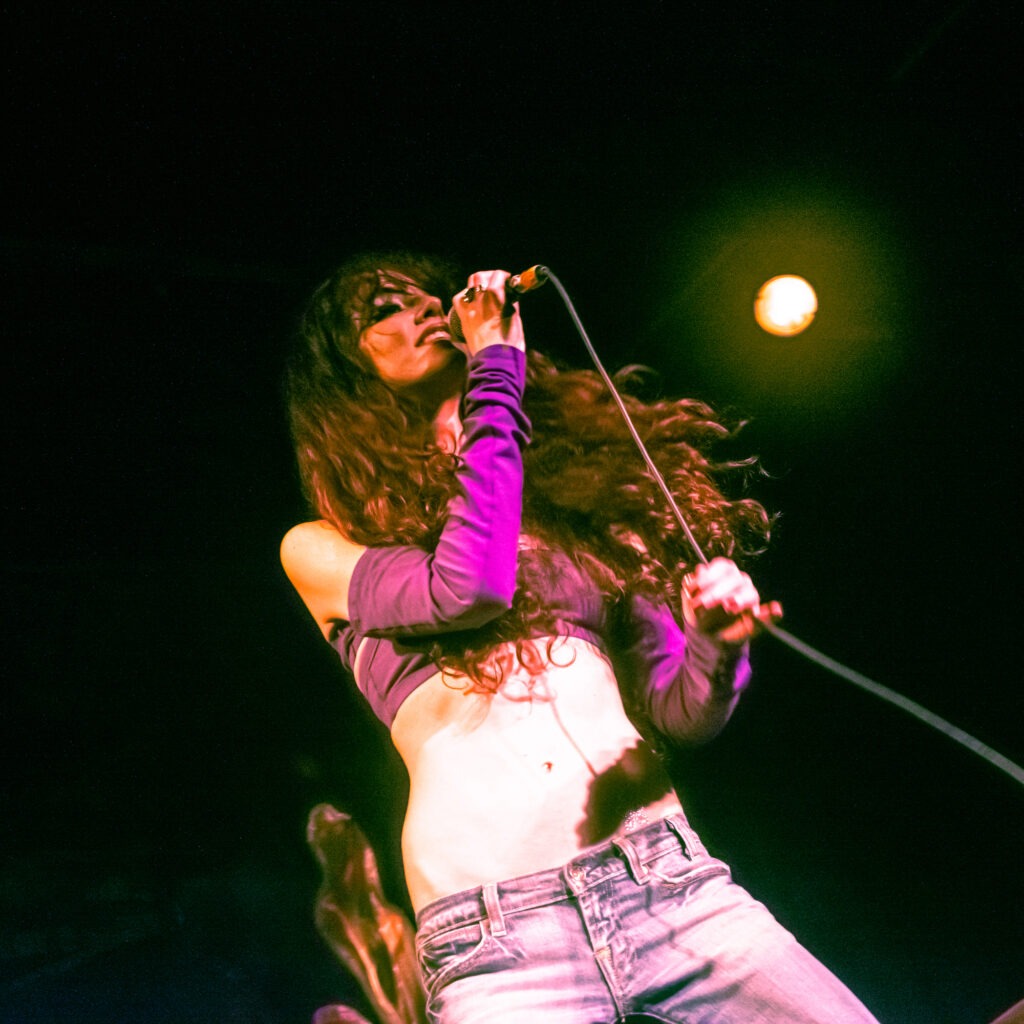
Contracts and payouts
At this point, you should have set up some form of contract with the venues you’ve booked. Establishing artist fees and payout details in advance will help avoid any unfortunate surprises at the end of the night, and let everyone involved – from promoters to performers – know what to expect.
Without naming names, some venues have set rates and will pay as low as $50-$100 per band, regardless of how much is made at the door, unless you negotiate a deal ahead of time. Ideally, you’ll be able to set up a minimum performance fee, or secure most (even all) of ticket and door sales to split between bands. Always read the fine print in your contract, and remember that most promoters will pitch low at first but have some wiggle room. It can also be useful to reach out to musician friends who’ve worked with certain venues in the past to get an idea of how they operate.
If you are organizing the event and acting as promoter, grants are hugely beneficial (see Your First Big Tour Part 2: Booking and Budgeting). They allow you to offer each act a guarantee, on top of a percentage of ticket sales, which will be a lot more appealing than gambling on how many people will show up to the event. Even when you’re confident you’ll bring out a decent crowd, it’s always preferable for artists to know the minimum of what they’ll be earning. Sometimes an even split between each band makes the most sense, other times headliners or local artists with the most draw can be paid more. It’s also common for out-of-town artists to make a bit more to help pay with gas and touring costs.
As a general rule, settle finances well before the show. Talking about money can be awkward, but it’s important for everyone to feel like they’re getting a fair deal.
Show etiquette
The same courtesy you show the other artists you’re playing with should extend to the sound people and venue staff. As the live sound engineer and co-founder of Montreal venue The Diving Bell Social Club Evan Johnston said in his interview with RAC, Live Sound: Expecting the Unexpected: “If they (artists) have respect for what you’re doing and know that you respect what they’re doing, everything’s going to go smoother.”
Introduce yourself to whoever you’re working with that night and get to know them on a first-name basis. Sound engineers are the people who will ensure you have the best possible sounding performance, so it’s in your interest to have a good rapport with them. Express your gratitude for their work. Being friendly goes a long way, and helps to establish a positive professional relationship with a venue, especially if you want to play there again.
Of course, this should go both ways. Mutual respect between you and the sound engineer is key. Be polite but confident when asserting with your tech needs – this has been interesting to navigate as a woman in the music industry, as I’ve been called demanding for asking for something as basic as vocal reverb. Other times, sound guys have fully ignored me and chosen to only talk with my male bandmates when setting up for a show. The music industry still has a long way to go, and things are getting better, but you should never feel like you’re asking for too much when making a reasonable request or explaining your setup. No one knows your sound better than you do.
Last tip: keep venues posted if you’re going to be late. Things happen – cars break down and traffic pops up when it’s least convenient – but it will save everyone a lot of stress if you give them a head’s up on your ETA.
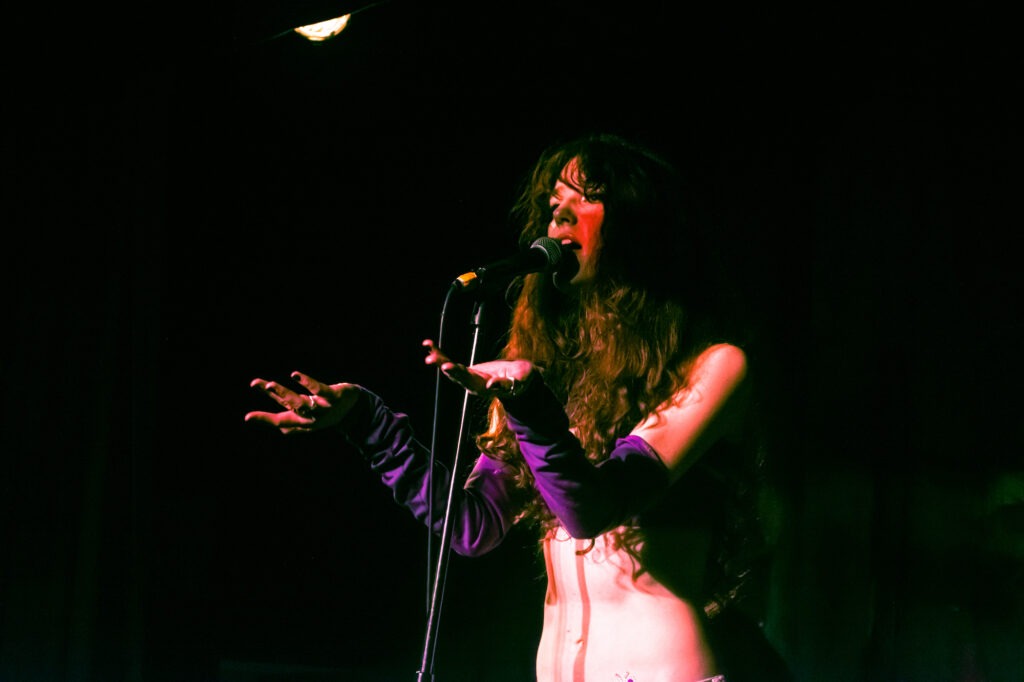
Connecting with local industry and fans
Before arriving in major cities, look into local industry professionals you can reach out to for a meeting. This will require some research and more cold emails (see our Tips for Writing Professional Cold Emails), but can be well worth your while. If you’re performing at a festival, they’ll usually post a list of delegates on their website, including A&R reps, music supervisors and booking agents. Invite them to your shows (and put them on the guest list), but also try to catch them for coffee or lunch. Industry folks are likely receiving tons of emails from artists inviting them to shows, so following up with a one-on-one can help you stand out.
It’s not every day you get to spend time in new cities, so create all the connections you can. This includes meeting fans! Invite the audience to come hang out at the merch table after shows. You might be tired, but lingering even half an hour can go a long way. People have taken the time to come out, so take the time to thank them! The fans you meet during your first tour could follow you for your whole career. Make a good first impression and let the audience know how much you appreciate them being there.
Whether 10 or 1000 people show up, make sure you’re performing every night like it’s to a full room. Think about your favourite concerts of all time. Chances are, regardless of how many people were in the room, the artist took the time to connect with their audience and create a memorable experience. How cool would it be to create that kind of memory for your fans?
Social media promotion on the road
Document, document, document. Family, friends and fans from back home (or around the world) want to follow your tour. Help them feel like they’re with you when you drop your first album, or when you finally play that big venue. Going live on TikTok/Instagram/Facebook is a great way to share important moments with people everywhere, and lets you interact with them in real time.
If your budget allows, hiring a professional photographer or videographer for your tour can take your content to the next level. I toured the US and Canada in 2019 with my labelmate Janette King, and our talented friend Ciele Beau came along to document our journey. Not only did this give us amazing memories to look back on, we had a constant stream of quality content to share from every stop we made. You can gather footage from the audience to share on social media, but when you have someone designated to capture photos and videos, you know you’ll have all you need to create promotional content or fun TikToks.
Speaking of TikTok, take full advantage of social media to promote your tour dates – especially on platforms with wide-reaching explore pages, such as TikTok’s FYP. Unlike on older apps, your videos can pop up for a much larger audience than only those who follow you already. It’s definitely still beneficial to make stories on Instagram to let people know you’re coming to their city, but TikTok’s algorithm can help you get the word out far beyond your usual network. Even taking a bit of care in choosing the proper hashtags could bring out new folks to your show who would have never heard of it otherwise. If you have room in your budget, you can also boost certain posts to push them harder in cities where you don’t know many people.
Make sure to promote the other bands you’re playing with on social media too! Hopefully they’ll support you back, and you can share each other’s projects to your respective audiences.
Quick tip: consider collaborating with small local brands on your tour wardrobe. For my album release circuit, I linked up with Montreal thrift shop Friperie Sidney’s, and sustainable brands Em & May and Stay Soft to create custom outfits. Now you’ve got your stage looks sorted, and you can mutually promote each other on social media and represent your city’s fashion on the road.
Taking care of your mental health on tour
It’s hard to slow down on tour. You pretty much need to be “on” the whole time, and everything moves at a rapid, unpredictable pace. As mentioned in Part 2 of this series, splurging on a hotel on a day off can be a worthwhile investment to catch up on sleep and recharge. Late nights are inevitable, and there will always be something fun to do after shows, but you don’t need to force yourself to stay up till 4AM every night if you’re exhausted. A tour is very much a marathon and not a race, so pace yourself – especially if you aren’t used to performing so many days in a row. If you’re a singer, you also need to make time for vocal rest so that you don’t lose your voice partway through (nightmare). Naps are precious! Grab one when you can (when you aren’t behind the wheel, of course).
A reminder that sometimes McDonald’s is the only meal option available for miles, but making a quick trip to the grocery store for some more nutritional options when you can helps fuel you for the stage and long travel days.
Then there’s the imposter syndrome. If it’s your first time out on the road, chances are there will be moments when you doubt yourself. It’s a huge undertaking and you might not yet fully believe in your abilities to perform night after night in front of new audiences. Please remember that literally no one knows what they’re doing until they do it. Even your favourite musicians, producers and DJs had to start somewhere. You should feel so proud to have gotten this far, and your confidence and skills will only get stronger along the way.
The end-of-tour can also be tough. You go from 100 to 0, and all the highs of life on the road come to a screeching halt. Almost every artist I know has dealt with some kind of “post-tour depression”. I personally found it challenging to slow down and get back to normal life without feeling like I should still be out there growing and grabbing new opportunities. But the reality is, you can’t keep going at full speed all the time without burning out. Life as an artist comes in cycles. You can always start planning for your next big tour as you recharge, or dive back into the creative process and write new music. Give yourself a break to feel proud of all the hard work you’ve accomplished! And reach out to friends and fellow artists if you need support or someone to talk to about post-tour blues – we’ve all been there.
Every day is different on tour. There are good days and bad days and everything in between. You can only plan so much before you need to just let go and enjoy the moment. You’re about to embark on the journey of a lifetime, so make the most of it, and show them what you’ve got out there. You got yourself this far, now let’s see just how far you can go.
Written by Maryse Bernard
llustration by Yihong Guo
